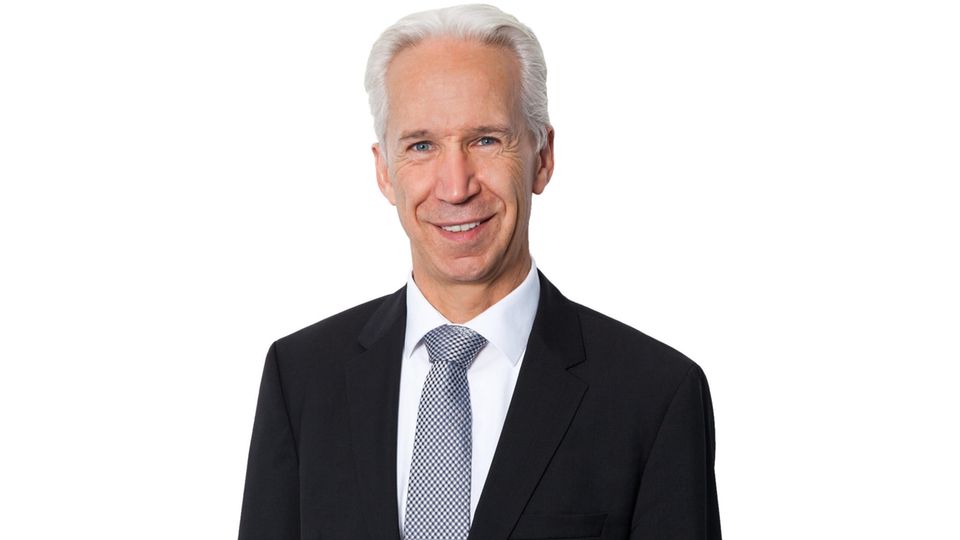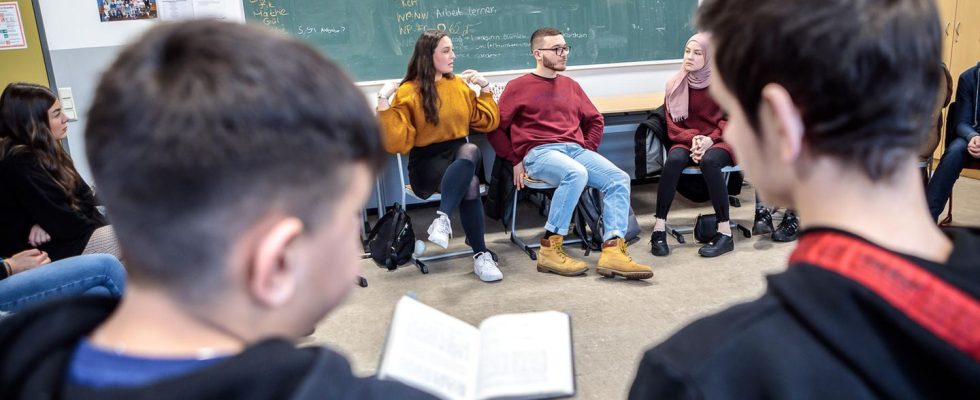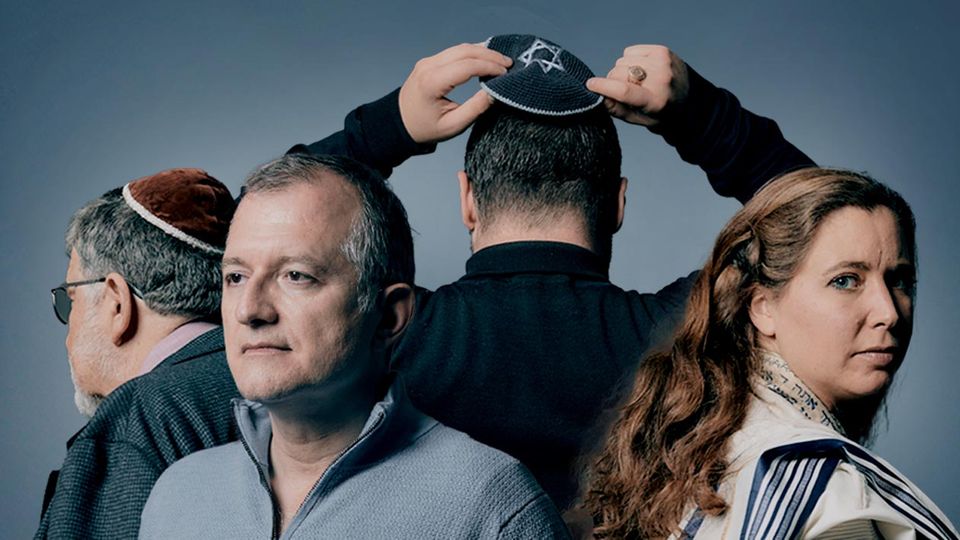The recent events in the Middle East are also causing unrest and conflict in German schools. The number of anti-Semitic incidents is increasing. Gerhard Brand, President of the Association for Education and Science*, warns against leaving teachers alone.
Mr. Brand, are German schools overwhelmed by the Middle East conflict?
Anti-Semitism has always been an issue in our schools. Even before the recent incidents in the Middle East, anti-Semitic tendencies existed in schools, although in small numbers. It was latent, but never in the foreground. At the same time, because of our history, the Shoah was always part of the curriculum.
Have there been an increase in anti-Semitic incidents in the past three weeks?
We are actually getting more reports, but they are still few compared to the current overall social situation. Maybe now it’s one a week, it used to be one a month. However, this may also be because schools are not proud of such incidents. That’s why they don’t report everyone but try to solve it on site.

Gerhard Braun is President of the Federal Association for Education and Upbringing
© VBE
What type of incidents are you hearing about?
Often it is children and young people who do not reflect on what they say. They then make sayings that they have picked up from adults. Some also do it to provoke. But they don’t realize what they are doing to those affected. It is the responsibility of schools to provide educational work.
Are schools doing this enough?
I’m telling you clearly: If anti-Semitism wasn’t a problem in our society, there wouldn’t be such incidents in schools either. Anti-Semitism does not arise in school, it is brought into schools from society. I warn here against a reversal of causes.
“We need mandatory reporting”
How could schools be better supported in their fight against anti-Semitism?
We need a uniform reporting requirement. Only then can we answer how much anti-Semitism there is in our schools. To do this, it would be necessary to clearly define what anti-Semitism is. This could be developed by a specialist group of experts and then decided by the Conference of Ministers of Education and Cultural Affairs. At the moment, each school has to decide for itself what it classifies as an anti-Semitic incident.
A common saying in German schoolyards is “You Jew” as an insult. How would you categorize this?
For me this is anti-Semitism because it clearly serves to devalue people. In such cases, it would be important to speak to the student who uses this formulation as a provocation. It must be made clear to him what he said.
Many parents report that the Middle East conflict is not discussed in their children’s lessons.
Schools must not hide this conflict. Their job is to reflect and explain “life out there.” This applies to the war in Ukraine as well as to the conflict between Israel and Hamas. The children notice when their parents watch the news and talk about it. If you leave them alone with it, it will be too much for them. It is the school’s job to bring this into school and discuss it.
Many state governments have published handouts on the Middle East conflict and anti-Semitism. Is that enough?
That’s good, but material alone is not enough. It takes time to discuss such conflicts at school. You have to prepare such lessons didactically. In everyday life, teachers are often already under a lot of stress.
Some teachers say openly in private that they do not want to risk confrontation with Muslim students in their classes.
Luckily I don’t hear that often, but it does happen. There must be support systems: through social educators, through experts in political education who could come to schools. Teachers cannot alone explain all the world’s conflicts. And we have to be clear: Depending on the child’s political or religious background, he or she will hear a completely different version at home than at school. Then it finds itself in an internal conflict. You can’t leave it alone. But we need enough staff for this. We cannot tell children what to think, but we can educate and accompany them.
“Friedrich Merz has oversimplified the problem”
Bavaria has just made visiting a concentration camp compulsory for all students. Should all federal states follow suit?
I would recommend every school to visit a concentration camp or invite contemporary witnesses. I have experienced that even unruly classes become very quiet when a Jewish mother says that during the selection process she said that her child was not resilient in order to protect it. And this was then sent to the gas chamber. But I wouldn’t make concentration camp visits compulsory; in the end, the schools have to decide that for themselves. In some cases, due to the acute shortage of teachers, there are not enough staff at all for something like this.
CDU leader Friedrich Merz recently warned on the short message service X that too many children do not speak German well enough and that it is therefore difficult in schools to achieve an adequate level of education for all children. Is he right?
Friedrich Merz has completely oversimplified the problem. It is nonsense to say: If we didn’t have these children in schools, everything would be fine. They are here and more will come for good reason. Of course, it is a big challenge for schools when – as in some cases – they have a proportion of foreigners of over 90 percent and students from 30 different nations. These schools must be given better equipment and sufficient staff. Friedrich Merz could demand that if he took the problem seriously.
*The Association for Education and Upbringing (VBE) is the largest specialist union within the German Civil Service Association. It has around 164,000 members, most of whom are educators and teachers at primary, secondary, secondary, special and comprehensive schools.



